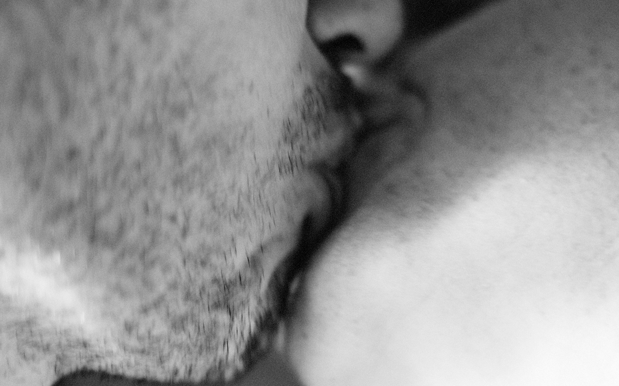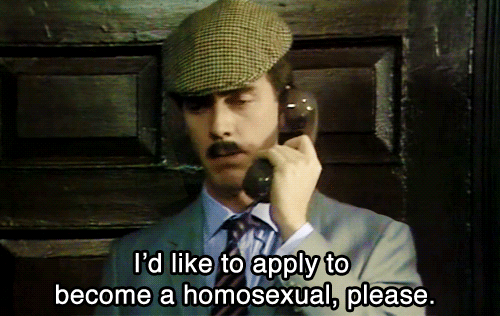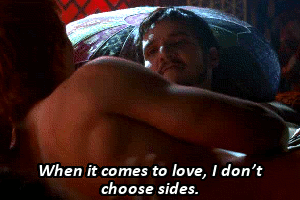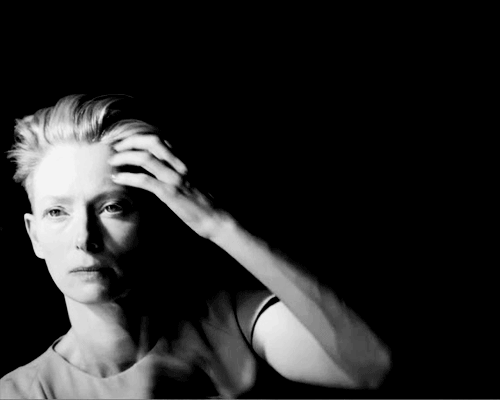
Like most Australians, the biggest epiphany I had about my sexuality was thanks to something I saw late at night on SBS.
Thanks to one weirdly erotic scene in a German film where two people on a rowing team non-sexually apply moisturiser to each other, I came to the surprising and terrifying conclusion that I was attracted to men.
This was particularly surprising because I was very conclusively and demonstrably attracted to women – apparently unfamiliar with the concept of bisexuality, I thought the two were absolutely mutually exclusive.
I was terrified at the thought that I might secretly be gay. Not willing to let the fact that I was very clearly still extremely horny for women stop me from pursuing this line of thinking, I already began to picture how I would be ostracised from my family and friends.
Although this was the early 2000s and not particularly the worst climate ever for LGBT people, at a high school age, being gay was the worst possible thing I could imagine – the concept of gayness existed largely just as an insult for bullies to use against even vaguely effeminate straight kids, I couldn’t imagine how much worse it would be for me if I actually was gay.

Surprisingly, it turns out I didn’t have all that much to worry about. Once I figured out it was possible to be into both dudes and chicks at the same time (I lived in a beach town at the time, that’s genuinely how we talked), I became smug as hell about it – oh you’re only attracted to one gender? Oh, that’s too bad. Me? I have twice as much chance as you as finding someone to love / have sex with.
Even bullying-wise things didn’t go so bad for me; I was pretty open about it at school and, although I did have the occasional slur tossed at me, it mostly came from people who would have called me that anyway because I had a bit of a lisp and was a huge weird nerd.
Weirdly, bisexuality as an identity took on a weirder turn for me in adulthood. The first inkling I had that people weren’t completely 100% with it was having two different girlfriends tell me they were worried that I was going to cheat on them with a dude, because I wasn’t getting my gay needs met by them.
I thought this was absolutely insane – if I was straight but into both blondes and brunettes, would I be more liable to cheat if I was dating someone who didn’t regularly alternate between the two hair colours?
What I didn’t realise I was encountering at the time was the wonderfully pervasive idea that bisexual people are naturally sluttier.
Despite wonderful advances in attitudes towards queer people, this weird misconception has managed to hang around for a startling amount of time.
Just because someone has a potentially higher number of possible sexual partners doesn’t mean they’re actually going to be having more sex. As much as I might wish this was the case, it is unfortunately not.

I also found myself occupying a space where no one took me all that seriously. People seem to struggle with the idea that you can be attracted to more than just one gender, believing instead that it’s just a temporary stop on the way to either full straightness or full gayness.
With heterosexual people this presented itself in a relatively harmless way: people continuously asking me if I’ve decided to become gay whenever I’m seeing a guy, or the reverse if I’m seeing a woman.
I’m 26 now, if this is “just a phase”, this “phase” has been going on for over a decade and is not showing any signs of letting up.
With queer people (especially gay men), it always made me feel like I was at something of a remove – an outsider. No one consciously tried to make me feel that way, but every time I went out clubbing I was dealing with the sneaking suspicion that I didn’t belong, that I was just pretending to be a part of this world.
Especially when I was younger, I felt like my attraction to women meant I didn’t get to use the language and codes of gay culture, but still paradoxically felt more welcome in those spaces than I did going to non-queer spaces. It was awkward.
I feel this much less strongly now that the queer spaces I’m a part of extend further than just the obnoxiously loud clubs where I was trying to pick up and also as a product of the fact that I’m now much more certain that sexuality is extremely fluid and no one is 100% anything and thus it’s not really anyone’s job to police anyone else’s sexuality. At the time, though, it felt very alienating.
Being a part of gay culture was all the more important to me because there isn’t a corresponding, well-defined culture or identity formed around bisexuality.
Other than some weird ideas about perfect looking, inscrutable, androgynous otherworldly beings like Tilda Swinton or David Bowie or the weird almost-pornographic association with sexiness the word “bisexuality” has in the media, there isn’t really a place for us.

But I think this is bound to change, for two reasons. First of all: as I said above, I think the more people realise that sexuality isn’t quite as clear cut as you might think and it becomes more socially acceptable for people to straight outside their “lanes”, the idea of sexuality as identity will itself become more ambiguous. Secondly: there are a lot of us.
Studies are finding that increasing levels of young people are identifying as bisexual over straight or gay.
Who could have guessed? It turns out if people are in a society where it’s OK to express that you might just be a bit a bit gay, you find out there are a lot more people out there who are a bit gay. What a world.



